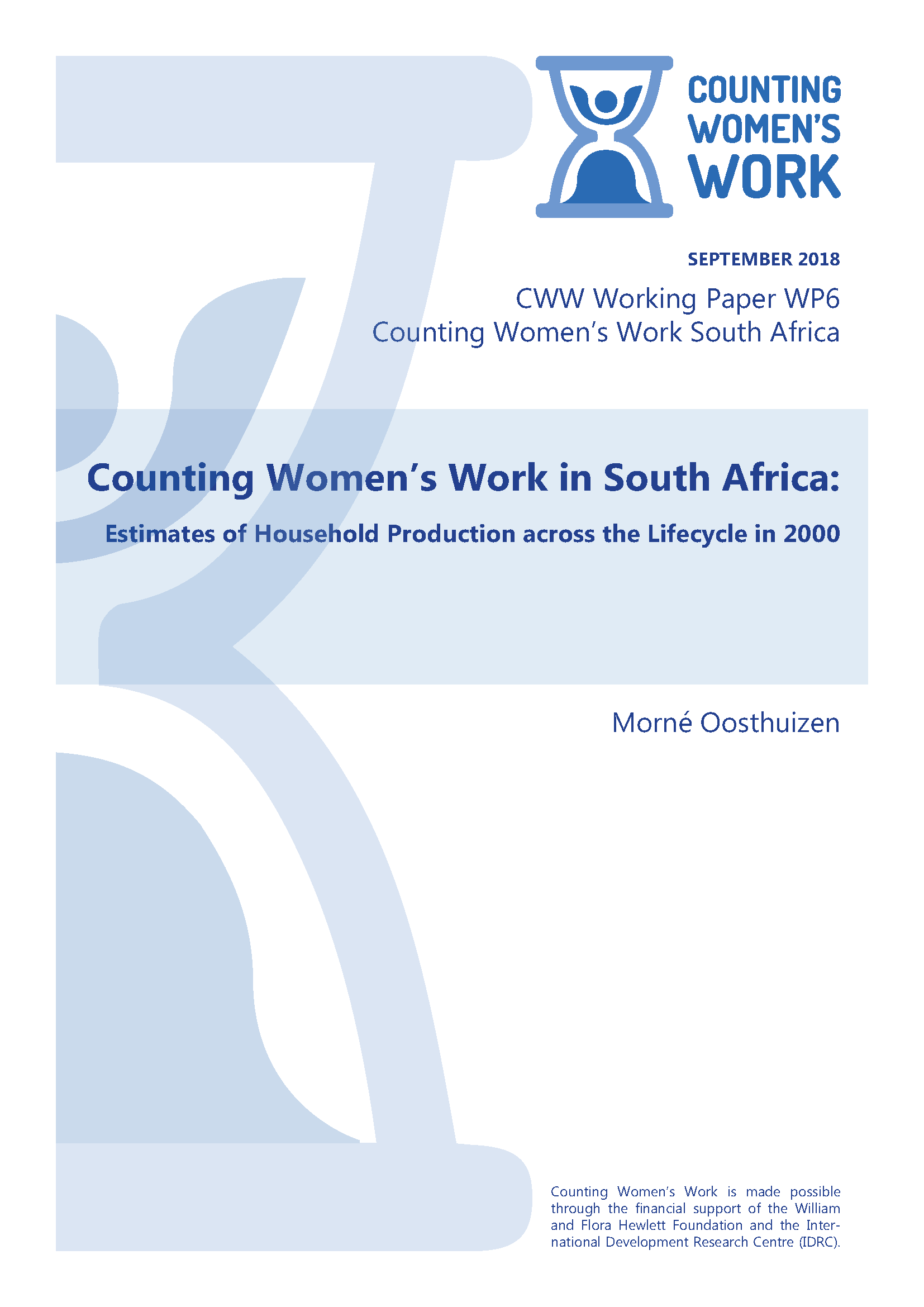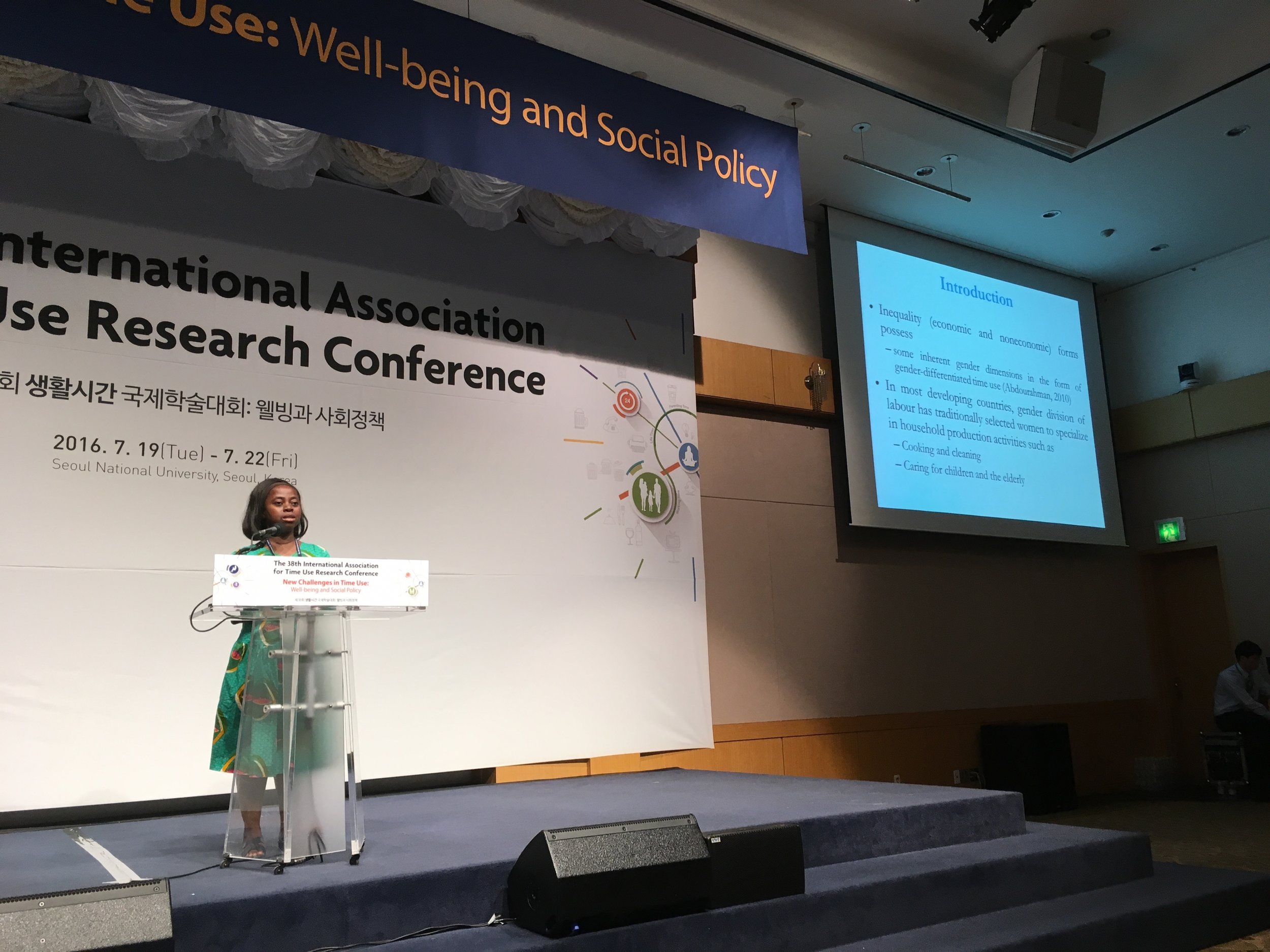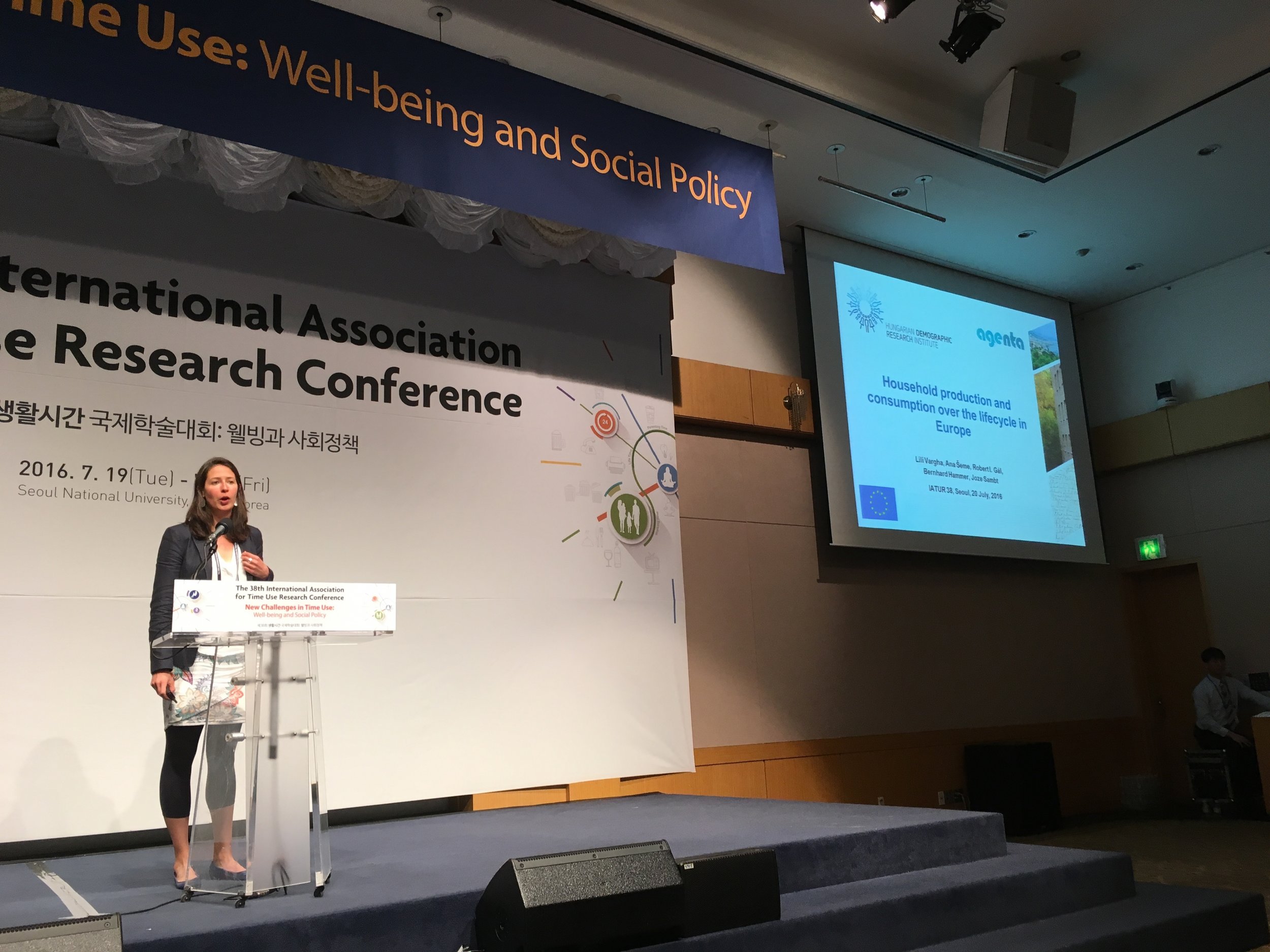Time Use, Policy, and Economic Growth Online Symposium
Counting Women's Work and the Population Reference Bureau collaborated on a webinar featuring CWW country teams discussing research and policy around the world and a senior national statistician giving the perspective of someone directly involved in public policy and public statistics.
In collaboration with the Population Reference Bureau, the Counting Women’s Work project held an online webcast to explore policy applications of research into time use and unpaid care work. The discussion was policy focused, with the main questions revolving around how estimates like CWW’s National Time Transfer Accounts can impact policy. We were honored to host several speakers who are long-time participants in the Counting Women’s Work project and one chief national statistician who gave his perspective on these important issues from outside the project.
Speakers:
Morne Oosthuizen, DPRU/ University of Cape Town
Latif Dramani, CREG-CREFAT
Beatriz Urdinola Piedad, National University of Colombia-Bogotá
Juan Daniel Oviedo, National Statistics Office – DANE, Colombia
Moderators
Gretchen Donehower, Counting Women’s Work
Marlene Lee, Population Reference Bureau
In preparation for the session, the Population Reference Bureau prepared a fact sheet featuring CWW research in Vietnam, Colombia, and Senegal. The fact sheet features definitions and basic methodology and shows how CWW research helps policymakers understand gender gaps in work and income, as well as how they differ by socioeconomic status, or urban/rural residence.
CWW Working Paper No. 8
CWW Working Paper WP8 is by Morné Oosthuizen, featuring CWW results for South Africa in 2010. It is entitled Counting Women's Work in South Africa: Incorporating Unpaid Work into Estimates of the Economic Lifecycle in 2010.
The eighth publication in the Counting Women’s Work working paper series covers the results for South Africa for 2010. (The sixth working paper featured South African results from 2000.) CWW working papers provide more detailed analysis than the Country Reports and are authored by the CWW country teams.
CWW Working Paper WP8 is by Morné Oosthuizen, and gives more recent CWW research for South Africa. The paper is titled Counting Women's Work in South Africa: Incorporating Unpaid Work into Estimates of the Economic Lifecycle in 2010. It can be downloaded through the link below.
Infographic, South Africa 2000
CWW infographics summarize the market-based and unpaid care work economy in a country. This post shows the infographic for South Africa in 2000.
Counting Women’s Work estimates of the market and unpaid care work economies can be summarized with a series of statistics. CWW produces infographics to show these results. Infographics are available with a dark or light background. The infographic for South Africa’s 2000 results is shown below. Results from 2010 were published previously and can be found here.
All infographics are licensed under a Creative Commons Attribution-NonCommercial 4.0 International License.
CWW Working Paper No. 6
CWW Working Paper WP6 is by Morné Oosthuizen, and details the CWW research for South Africa. It is entitled Counting Women's Work in South Africa: Estimates of Household Production across the Lifecycle in 2000.
The sixth publication in the Counting Women’s Work working paper series covers the results for South Africa using data for 2000. CWW working papers provide more detailed analysis than the Country Reports and are authored by the CWW country teams.
CWW Working Paper WP6 is by Morné Oosthuizen, and details the CWW research for South Africa. The paper is titled Counting Women's Work in South Africa: Estimates of Household Production across the Lifecycle in 2000. It can be downloaded through the link below.
CWW Country Report, South Africa
The first CWW Country Report features results from South Africa.
CWW country reports provide an overview of the estimates for that country. These include age profiles of market labor income and consumption by sex from National Transfer Accounts. To include unpaid care work, consumption and production from National Time Transfer Accounts are included as well. The first country report published is from South Africa. Please click the link below to view the report.
Counting Women's Work at 38th International Association for Time Use Research Conference
The Counting Women's Work project presented a special session at the 38th International Association of Time Use Research (IATUR) Conference, hosted in Seoul, South Korea, July 2016. The session provided a useful opportunity to engage more closely with the time-use research community.
The Counting Women's Work project presented a special session at the 38th International Association of Time Use Research (IATUR) Conference, hosted in Seoul, South Korea, from 19 to 22 July 2016. The session was well received and provided a useful opportunity to engage more closely with the time-use research community.
The following presentations were made:
Gretchen Donehower: Age and Gender in Time Use-Based Estimates of the Care Economy and Household Production
Morne Oosthuizen: Counting Women's Work in South Africa
Eugenia Amporfu: Measuring the Distribution of Housework among Men and Women in Ghana
Lili Vargha: Household production and consumption over the lifecycle in Europe
Estela Rivero: Intergenerational time transfers and time use in Mexico. A 2002-2014 comparison
Categories
Tags
- Africa 3
- Asia 3
- Audio 2
- Brazil 1
- Burkina Faso 2
- Colombia 10
- Costa Rica 10
- Covid19 2
- Cross-country 19
- El Salvador 1
- Europe 5
- Example Code 1
- Fertility 2
- Gender Dividends 3
- Ghana 4
- Hispanic ethnicity 1
- Human Capital 1
- Hungary 1
- India 3
- Kenya 2
- Latin America 7
- Mauritius 2
- Methodology 6
- Mexico 4
- Policy-related 10
- Senegal 5
- Slides 10
- Slovenia 1
- South Africa 9
- South Korea 2
- Spain 2
- Spanish language 4
- Turkey 1
- United States 3
- Uruguay 2
- Video 7
- Vietnam 4
- Web Conference 4
















